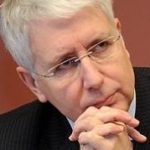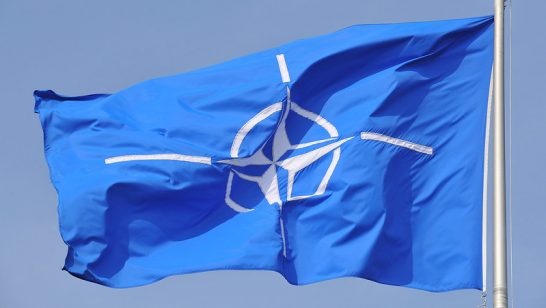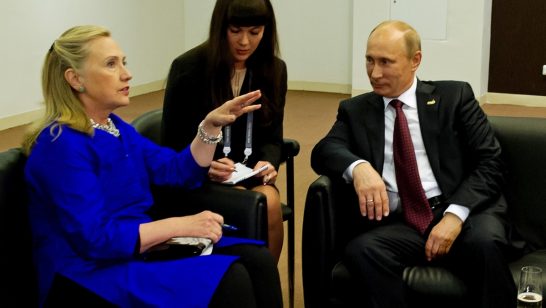
Following Russia’s war in Ukraine and NATO leaders’ strong, united reaction at the Wales Summit, the founding principle of territorial defence of member states has returned to the centre of the Alliance’s business. As Allies begin to implement decisions taken in Wales last month with a certain sense of urgency, the opportunity to reinvigorate NATO’s core values needs to be fully utilised.
Regrettably, Russia’s overturning of the post-Cold War international order means that the immediate prospects for a “Reset 2.0” in West-Russia relations are slim. Whereas Putin turned down the chance to attend NATO’s 2012 Chicago Summit, his international isolation precluded inviting him to Wales. Attempts to seek solutions to the challenges posed by a revisionist Russia should, nevertheless, continue, without abandoning our basic principles or pursuing appeasement.
Russia is conducting several parallel wars at the same time. There has been a military intervention by stealth into Ukraine’s Crimea and Eastern territory. An economic war is taking place following sanctions imposed on Russia by the EU, U.S. and other Western powers. An information war is being conducted by Russia on a massive and asymmetrical scale, something that neighbouring countries have experienced during the last two decades. The combination of these various elements has resulted in a phenomenon described as “hybrid war”, “next generation warfare” or “non-linear warfare”. The toxic results are there for all to see in Ukraine.
New “warning shots” have also been fired by Russia since Heads of State and Government met last month in Wales. An intelligence officer was abducted from Estonian territory just after President Obama’s visit to Tallinn and languishes in a Moscow jail. A Lithuanian fishing vessel was recently captured in international waters in the Barents Sea and is being held, along with its crew, in Murmansk. The continuously increasing rate of incursions into Baltic States’ air space and territorial sea results in regular scrambles by NATO planes policing airspace in the region and appropriate responses by our naval forces.
The changing nature of the hybrid war threat demands a speedy and flexible response. Deterrence must remain at the core of such a response and it needs to take on a similarly hybrid form. What can be done to prevent and deal with the little green men appearing on NATO territory, just like in Ukraine? The Summit and the subsequent pronouncements by top NATO officials confirm clearly that implementing similar scenarios in Member States by a third party would be met with an immediate response by the Alliance.
This firm NATO resolve also demands measures by member states themselves. The speedy establishment of the NATO Centre of Excellence on Cyber Security in Tallinn in response to the 2007 cyber-attacks on Estonia is a positive example. The accreditation of the NATO Strategic Communications Centre of Excellence in Latvia at the Wales summit anticipated the challenges ahead, and this should be applauded. But combined NATO funding for strategic communication pales in comparison to the annual figure of the 300 million U.S. dollars estimated to be spent by Russia.
What other measures should the member states themselves take? Principally, there is an urgent need to devote sufficient resources to defence. Latvia’s decision to commit 2% GDP in defence by 2020 should be implemented speedily. Scarce resources need to be spent wisely. The current Minister of Defence Raimonds Vējonis has indicated the need to focus on air defence capabilities, radars and the National Guard. The latter is a supplement to Latvia’s professional force, and as a strong local military capability acts as a deterrent that would increase the costs of any limited attack. More attention is also being paid to Latvia’s (and NATO’s) border security and strengthening civil-military cooperation. At the same time, intelligence and strategic awareness needs bolstering with a renewed emphasis on advance planning.
Other deterrence measures relate to the Summit decisions on the Readiness Action Plan and Very High Readiness Task Force. Specific activities have been already under way. The US “Ironhorse” armoured cavalry unit, with around 700 soldiers, 20 M1A1 Abrams main battle tanks with Bradley and Stryker armoured fighting vehicles are currently exercising in NATO’s Eastern flank. This is first time the US has shipped armoured reinforcements to Europe since the end of the Cold War. Such exercises also highlight the importance of Host Nation Support – making sure that the logistics are in place to receive U.S. and other troops on our territories.
There is a long-term commitment by NATO to decrease the reaction time of the NATO Response Force and to establish five Headquarters in the Baltics States, Poland and Romania. The latter move meets the logical and urgent need to deter potential threats to Alliance territory on the Eastern flank as a result of Russia’s recent aggressive behaviour.
Such moves do not breach NATO’s agreements with Russia, including the 1997 NATO Russia Founding Act which states that “in the current and foreseeable security environment the Alliance will carry out its collective defence and other missions by ensuring the necessary interoperability, integration, and capability for reinforcement rather than by additional permanent stationing of substantial combat forces”. Whilst NATO in Newport refrained from establishing permanent bases on its Eastern flank, it is clear that the security environment of seventeen years ago has changed fundamentally, not least as a result of Russia reneging on international agreements aimed at upholding stability and security in Europe.
NATO and the EU must continue to respond firmly to Russia invading, occupying and annexing the sovereign territory of a European country and turning the post-Cold War security order in Europe upside down. EU sanctions play a crucial role. Also, a European Council meeting devoted to defence and security is scheduled to take place in June 2015 during Latvia’s Presidency of the EU. Given the changed security environment, it may be time to re-write the European Security Strategy.
The Wales Summit heralded the start of a process which will make the Alliance more credible. No effort should be spared to seek solutions to the new challenges. A return to geopolitics and spheres of influence should be resisted, and the foundations of democracy, territorial integrity and human rights in Europe must be upheld.
The opinions articulated above represent the views of the author(s), and do not necessarily reflect the position of the European Leadership Network or any of its members. The ELN’s aim is to encourage debates that will help develop Europe’s capacity to address the pressing foreign, defence, and security challenges of out time.



